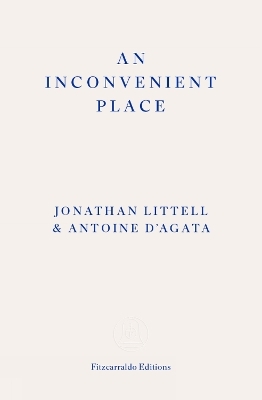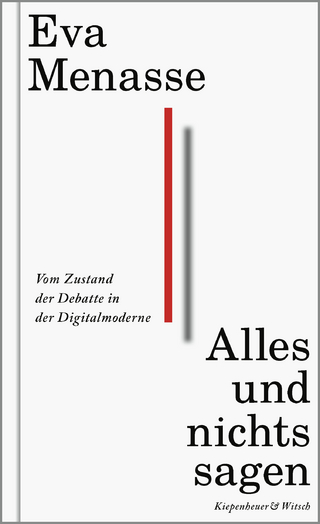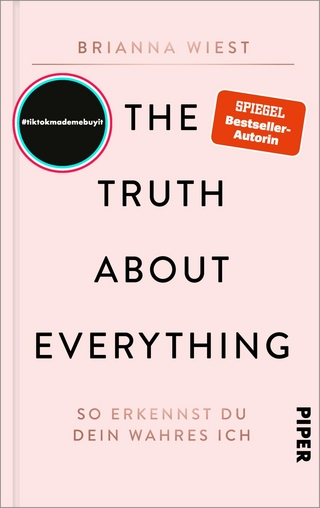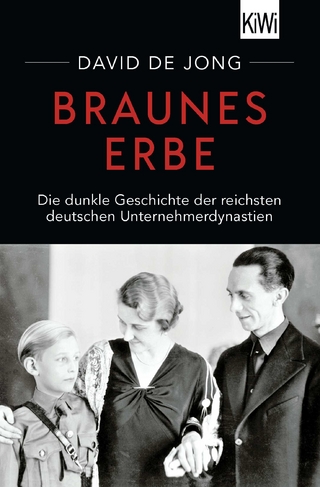
An Inconvenient Place
Seiten
2024
Fitzcarraldo Editions (Verlag)
978-1-80427-112-4 (ISBN)
Fitzcarraldo Editions (Verlag)
978-1-80427-112-4 (ISBN)
An exceptional essay in fragments on Babyn Yar, the Bucha atrocities and post-Soviet memorial politics by award-winning writer Jonathan Littell, with photographs by Antoine d'Agata.
What is a place? A place where things happened, horrible things, the traces of which have been erased? Ukraine, for a long time, has been filled with these ‘inconvenient places’ which embarrass everyone, no matter which side of post-Soviet memorial politics they stand on: crimes of Stalinism, crimes of Nazism, crimes of nationalists, crimes of Russians; the killings follow one after another on this battered territory which aspires only to a form of peace and normality.
With the photographer Antoine d’Agata, before the Russian invasion of Ukraine, Jonathan Littell began to survey Babyn Yar, the site of the 1941 massacre of the Jews of Kyiv, and the traces left on the landscape. The war came to interrupt their work. It resumed quite quickly in another form, in another place, the small suburban town of Bucha, which became infamous after the discovery of the atrocities perpetrated there by the Russian occupying forces. Again, a place where things happened; again, a place whose traces we erase as quickly as possible. How then to write, how to photograph, when there is literally nothing to see – or almost nothing?
What is a place? A place where things happened, horrible things, the traces of which have been erased? Ukraine, for a long time, has been filled with these ‘inconvenient places’ which embarrass everyone, no matter which side of post-Soviet memorial politics they stand on: crimes of Stalinism, crimes of Nazism, crimes of nationalists, crimes of Russians; the killings follow one after another on this battered territory which aspires only to a form of peace and normality.
With the photographer Antoine d’Agata, before the Russian invasion of Ukraine, Jonathan Littell began to survey Babyn Yar, the site of the 1941 massacre of the Jews of Kyiv, and the traces left on the landscape. The war came to interrupt their work. It resumed quite quickly in another form, in another place, the small suburban town of Bucha, which became infamous after the discovery of the atrocities perpetrated there by the Russian occupying forces. Again, a place where things happened; again, a place whose traces we erase as quickly as possible. How then to write, how to photograph, when there is literally nothing to see – or almost nothing?
Jonathan Littell was born in New York, and grew up in France. He now lives in Spain. His best-known novel, The Kindly Ones, was originally published in French in August 2006, and won the most prestigious literary prize in France, the Prix Goncourt, as well as the Académie Française’s Grand Prix de Littérature. He has since published books on Chechnya, Syria, Francis Bacon, as well as a novel and several novellas. He has written for Le Monde, the Guardian and the London Review of Books.
| Erscheinungsdatum | 05.09.2024 |
|---|---|
| Übersetzer | Charlotte Mandell |
| Zusatzinfo | 64 Illustrations, black and white |
| Verlagsort | London |
| Sprache | englisch |
| Maße | 125 x 197 mm |
| Themenwelt | Literatur ► Essays / Feuilleton |
| ISBN-10 | 1-80427-112-8 / 1804271128 |
| ISBN-13 | 978-1-80427-112-4 / 9781804271124 |
| Zustand | Neuware |
| Haben Sie eine Frage zum Produkt? |
Mehr entdecken
aus dem Bereich
aus dem Bereich
vom Zustand der Debatte in der Digitalmoderne
Buch | Hardcover (2023)
Kiepenheuer & Witsch (Verlag)
22,00 €
so erkennst du dein wahres Ich
Buch | Hardcover (2024)
Piper (Verlag)
18,00 €
die dunkle Geschichte der reichsten deutschen Unternehmerdynastien
Buch | Softcover (2024)
Kiepenheuer & Witsch (Verlag)
16,00 €


